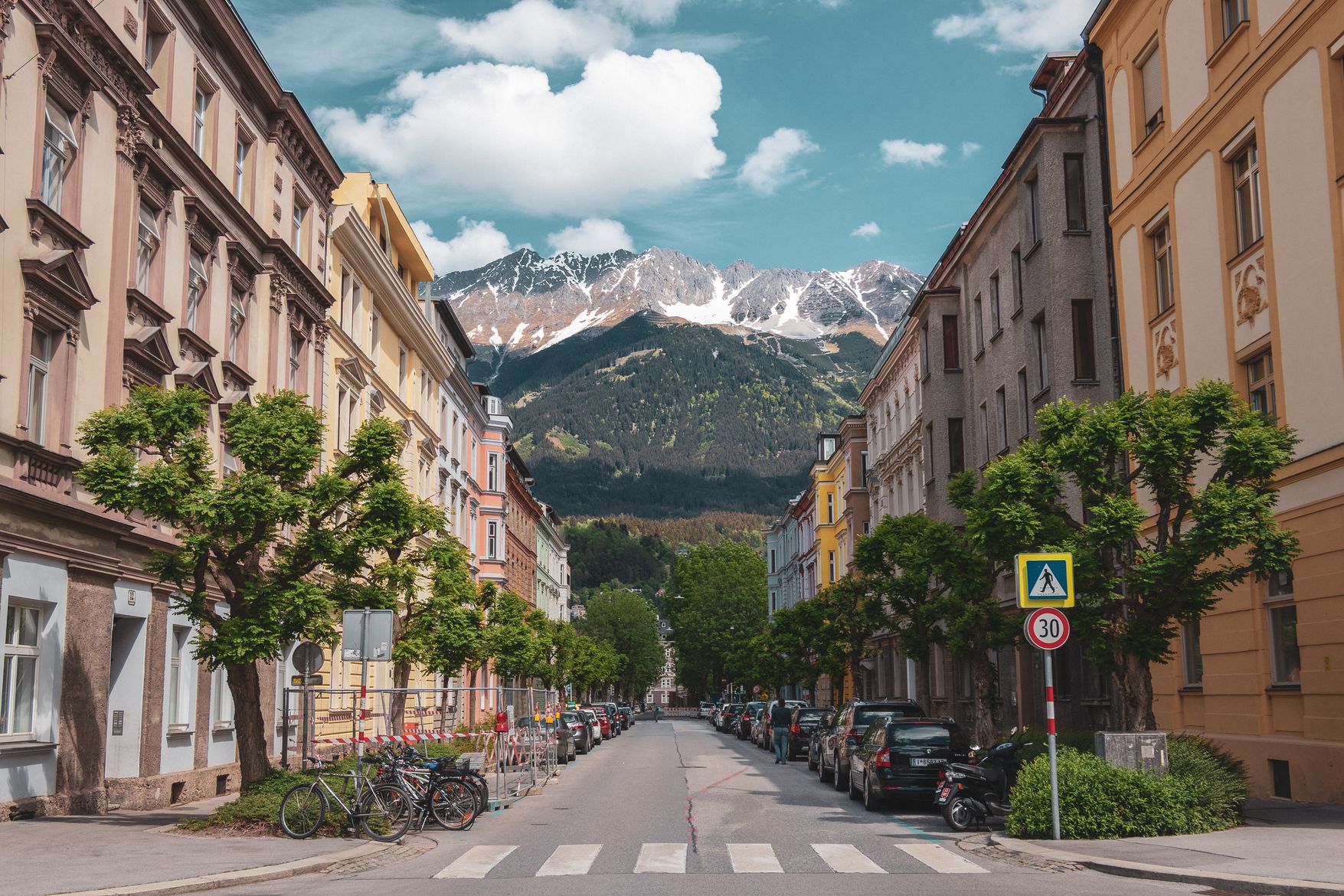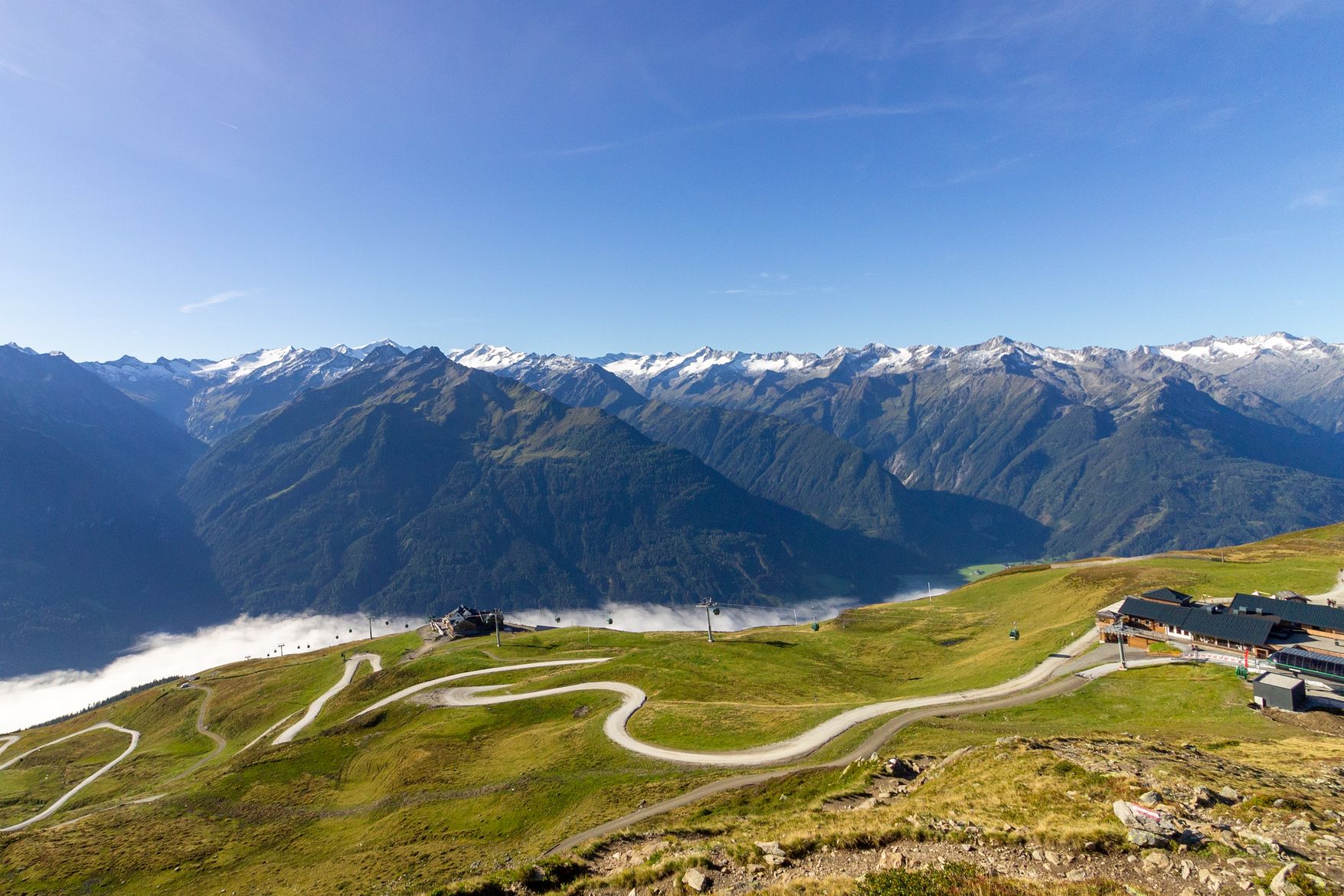Austria Traffic Guide
By car through the Alps
Austria is characterised by picturesque lakes, fairytale Alpine landscapes and idyllic villages. To explore all corners of the country, the car is the means of transport of choice. On scenic panoramic roads, even the journey is part of the experience.
To help you make good progress by car on Austria's roads, we have summarised some important traffic rules and general tips for travelling to Austria by car in this guide.
Austria traffic rules at a glance
- You can obtain a regular driving licence in Austria from the age of 18. However, young people can obtain an early driving licence from the age of 17 as part of the L17 training.
- German drivers can drive a vehicle in Austria with their normal EU driving licence. The German driving licence substitute for accompanied driving from the age of 17 is also recognised in Austria.
- Right-hand traffic applies in Austria.
- The speed limit within built-up areas is 50 km/h in Austria. Outside built-up areas and on dual carriageways, a maximum speed of up to 100 km/h is permitted. On the motorway, a general speed limit of 130 km/h may not be exceeded. Depending on the section of road, lower speed limits may also apply. So always pay attention to the signs.
- The driver and all passengers must wear their seat belts while driving.
- If you want to make a phone call while driving, you may only do so with a suitable hands-free system without operating the mobile phone by hand.
- The dipped headlights must be switched on at night and in poor visibility. Although there is no general obligation to have your lights on during the day, it is recommended that you also drive with your lights on during the day.
- A safety waistcoat, a warning triangle and a first aid kit must be present in the vehicle. A spare set of bulbs is also recommended.
- The blood alcohol limit is 0.5. Anyone driving with a test driving licence must comply with a limit of 0.1 per mille.
- If you have the right of way in Austria but stop, you lose your right of way.
- At roundabouts, the traffic entering the roundabout has right of way by default. Exceptions to this rule are indicated by appropriate signage.
Driving in Austria
The roads in Austria
Austria has some of the most beautiful roads in Europe. Along the routes between the cities, you can discover the picturesque mountain ranges of the Alps as well as characteristic Austrian villages.

If you want to go faster, you can use the extensive motorways and motorways that are subject to tolls.
You can generally expect a pleasant driving experience on Austrian roads. Most roads are sufficiently wide and have a road surface in mint condition.
Only in the Alps and particularly in rural regions can you encounter narrow passages due to the landscape.
Fuelling stations and charging points
Petrol and diesel: Petrol stations can be found all over the country. In urban areas and on motorways and dual carriageways, you can find petrol stations with a 24-hour service. In the rest of the country, petrol stations are open during normal business hours.

Electric cars: If you are travelling by electric car in Austria, you can usually get around the country with a little planning, and the charging network is much denser in the west of the country than in the east. You can also find more charging points for your electric car on main roads than in the countryside
hydrogen cars: Austria currently only has a handful of hydrogen refuelling stations. Although these are evenly distributed throughout the country, it is not yet possible to speak of optimal coverage. However, the hydrogen network is constantly being expanded.
Hire car or own car?
Thanks to the Schengen Agreement, in most cases you can drive your vehicle from Germany into neighbouring Austria without additional checks. Although the German licence plate number is sufficient as proof of liability insurance, you should still take the International Insurance Card with you in case of emergencies.
Car hire is also available in Austria, especially in popular cities such as the capital Vienna, in the tourist regions by the lakes and at international airports. Depending on the car hire provider, you only need to be 18 years old and in possession of a valid driving licence to book a vehicle. However, most providers set their minimum age at 20 or 21. Additional charges may also apply for young drivers and novice drivers.
Fines
There is no uniform catalogue of fines in Austria. Instead, fines are regulated regionally and can vary depending on the federal state. Small fines can be imposed directly by the police. In the case of particularly serious offences, you can expect to be charged, fined and banned from driving, and you should also be aware that fines and charges for traffic offences can follow you across the border. As Austria and Germany have a separate enforcement agreement, even small fines from Austria can be enforced in Germany.

Depending on the region, fines can be approximately as follows:
- Speeding offence: 29 to 5,000 euros (approx. from £25 to £4269)
- Violation of the seatbelt requirement: from 50 euros (approx. £43)
- Drink driving: from 300 euros (approx. £256)
- Overtaking incorrectly: from 40 euros (approx. £34)
- Red light offence: from 70 euros (approx. £60)
- Parking offence: from 20 euros (approx. £17)
- Mobile phone at the wheel: from 100 euros (approx. £85)
Conclusion: Some of the most beautiful roads in Europe
Driving in Austria is a predominantly pleasant experience. This is due not only to the good road conditions but also to the impressive views that can be enjoyed from every corner of the country. Thanks to an extensive refuelling and charging infrastructure, you can easily get around Austria with both a combustion engine and an electric car.
► Here you can find more information about the toll regulations in Austria so that you are optimally equipped for your journey.
